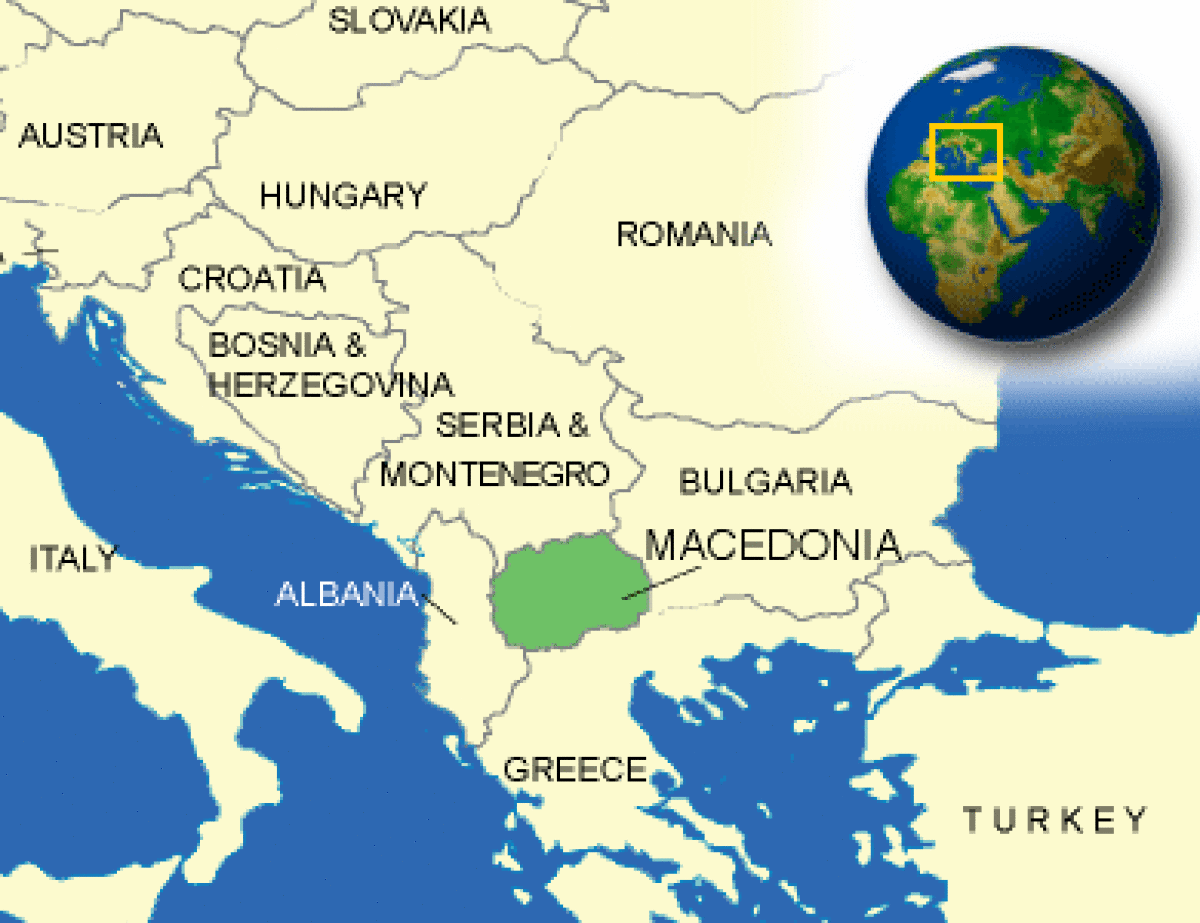
Whenever I read an article, a paper, or a book, I read it for what it says.
I also read for what it doesn’t say.
Russia notoriously releases documents that do not say things that would cause the West to erupt in protests upon reading. A few years ago, the SCO wrote a paper about cybersecurity in which they implied but did not say explicitly say that the State reserved the right to shut down the internet to preserve State security. As I read the paper I had the distinct feeling something was being ‘talked around’. When I realized what it was, the document ‘screamed’ this, at least to me. This usually is a result of me simply asking “why?”
While reading this article, I discovered the missing question was “why would the Russian people want to have a colored revolution?” With this in mind, Gerasimov appears to ask the wrong questions. “How can we suppress free speech and expression in Russia more effectively or just more?” “How can Russia control Russians better?” “How can we detect feelings of discontent?” There are many other questions which should now be offered.
A better question is “How can we change what Russia is doing to promote Russian citizen contentment and lessen global hatred of Russian policies?” This simply assumes that discontent causes colored revolutions.
The obvious next step should be to ask “Should Russia change its attitude of aggression against other countries?”
Russia is asking the wrong questions.
</end editorial>
Footnote: To get corroboration for this article I had to dig deeply. Here is an article in Sputnik Vietnam. http://vn.sputniknews.com/russia/20160301/1253738.html

Russia’s top brass has called on leading military theorists and specialists as well as the defense industry and the government to jointly develop a “soft power” strategy to counter the potential threat from “color revolutions.” The annual general meeting of the Academy of Military Sciences (Akademiya Voyennykh Nauk—AVN), on February 27, saw a number of inter-linked presentations addressing the nature of modern warfare and the role of military science in assessing such issues, as well as a keynote speech by the chief of the General Staff, Army-General Valery Gerasimov. Experts supported Gerasimov’s conclusion that in order to counter the possible security threat posed by “color revolution,” Russia must form and develop a range of soft power instruments. It was made clear that a “coup” in the color revolution model is regarded by Moscow as a form of hybrid warfare conducted by foreign powers against Russia’s interests (RIA Novosti, March 1).
Color revolutions were characterized as an essential component in Western “hybrid warfare” approaches, with the underlying message during the conference being that Moscow must now remedy these threats by forming new anti-hybrid capabilities of its own. Gerasimov’s speech has brought full circle the discussion triggered by his controversial article in Voyenno Promyshlennyy Kuryer in February 2013; Gerasimov’s assessment of modern trends in warfare was soon interpreted as evidence of the existence of a Russian concept and doctrine pertaining to “hybrid warfare,” with many rushing to judgement based on the example in Ukraine (Kommersant, March 1; Voyenno Promyshlennyy Kuryer, February 27, 2013).
Among the themes covered by speakers were reforming the military-industrial complex, weapons procurement, and the formation of private military companies. Central elements in the military theoretical framework that formed the backdrop to the presentations, especially Gerasimov’s assessments, are found in the work of the country’s leading military theorist—Army-General Makhmut Gareev, the president of the AVN. Indeed, in recent years Gareev has walked a line between traditionalists and modernizers in his articles and speeches, particularly calling for new ideas and approaches to how Russia confronts the challenges of modern warfare. In his written analysis published prior to EuroMaidan, he warned that a color revolution could pose a direct threat to Russian security (Voyenno Promyshlennyy Kuryer, February 24, 2016; December 4, 2013).
It is in this context, and following Russia’s military experiences in Ukraine and Syria, that Gerasimov chose the AVN to issue his call to action against color revolutions. Reportedly, Gareev also addressed the academy on the results of its activities in 2015 and set out some tasks for the year ahead. The AVN consists of 13 academic departments with 21 regional branches. It has 98 honorary members and 2,783 professors. Among the professors, 72 percent are retired military officers or reservists and 28 percent of the AVN’s military scientists are current members of the Armed Forces (Kommersant, March 1).
Gerasimov framed his comments by noting the firmly established foreign “high-tech” warfare concept aimed at achieving its goals by “remote” non-contact impact upon enemy forces, using high-precision and long-range systems operating in the air, sea and space. This trend, according to Gerasimov, was a prominent theme in the development of the world’s leading militaries in recent years, and is now reflected in Russian defense planning to 2020, including the Plan of Defense approved by President Putin and put into effect at the beginning of 2016. He continued by noting that Russia faces a broad range of multi-vector threats, especially linked to the use of soft power: political, diplomatic, economic, informational, cybernetic, psychological and other non-military means. The main result of Russian military science should be practical, leading the way in formulating new ideas and thinking on these issues. Gerasimov elaborated on the nature of military threats, Russia’s complex security environment, changes in the nature of combat, as well as the means and methods of using military force. In addition, he raised questions about the future priorities for the Armed Forces, including modernization as well as developing the strategic rocket forces and system of air and space defense (Voyenno Promyshlennyy Kuryer, March 8; Krasnaya Zvezda, February 28).
Turning to the threat posed to Russia’s security from the phenomenon of color revolutions, Gerasimov linked the themes of globalization, the weakening of national borders, as well as the emergence of the field of information as a fundamental component in modern warfare. Gerasimov believes that this shifts the focus to an integrated application of “political, economic, and information activities and other non-military measures relying on military force.” Looking out on international approaches to modern warfare, the General Staff sees “hybrid” approaches readily being used and developed by other powers, which, in turn, means Russia needs to play catch up. In his view, a “soft power” approach is needed to combat color revolutions using a range of means partly already present in the Foreign Policy Concept but necessitating refinement. Gerasimov wants the AVN to further study trends in modern warfare and to take into account lessons learned from the Great Patriotic War, Afghanistan and anti-piracy missions, as well as Syria and Crimea (though Russian forces met with little resistance in the latter). He also combined his call for soft power counter measures against color revolutions with greater efforts to study offense and defense in outer space and in the information space (Voyenno Promyshlennyy Kuryer, March 8; Krasnaya Zvezda, February 28).
By including the Great Patriotic War as an additional area demanding study to strengthen Russia’s approaches to future warfare, Gerasimov was not simply paying lip service to the AVN and the esteemed role of Gareev—whose views were largely shaped by his experience of the war. Indeed, the collective memory of June 1941 (date of Nazi Germany’s invasion of the Soviet Union), distilled even today into the educational culture of the top brass, explains the Russian security elite’s predisposed fear of a sudden, surprise attack—most recently embodied by the United States’ Prompt Global Strike and missile defense plans, which drive aspects of Moscow’s nuclear modernization (Nezavisimoye Voyennoye Obozreniye, February 26).
Gerasimov’s address to the AVN confirms the non-existence of a Russian hybrid doctrine, or approach to warfare per se. Rather, according to his public remarks, Gerasimov sees the need to respond to the United States and the North Atlantic Treaty Organization (NATO), which he claims are forming such capabilities (Nezavisimoye Voyennoye Obozreniye, February 28).
Filed under: #RussiaFail, CounterPropaganda, Information operations, Information Warfare, Propaganda, Russia Tagged: #RussiaFail, #RussiaLies, CounterPropaganda, propaganda, Russia, Russian propaganda
 Stone tablets. Monks copying by hand. Guttenberg printing press. Books. Newspapers. The Internet. All methods of publishing writing. For shared knowledge, to pique interest, and to inspire. For information. Knowledge. Exposure. To keep politicians, government employees, and corporations honest. How? That is the secret, my fellow information warriors.
Stone tablets. Monks copying by hand. Guttenberg printing press. Books. Newspapers. The Internet. All methods of publishing writing. For shared knowledge, to pique interest, and to inspire. For information. Knowledge. Exposure. To keep politicians, government employees, and corporations honest. How? That is the secret, my fellow information warriors.
 Russia, you wanted it bad, you got it bad.
Russia, you wanted it bad, you got it bad.




 This is the power of journalism.
This is the power of journalism. This is what we fear in the US with the government openly monitoring our conversations.
This is what we fear in the US with the government openly monitoring our conversations.

 Putin’s troops helped Damascus beat back Syria’s rebels. Now that Russia is on its way out, will Assad follow?
Putin’s troops helped Damascus beat back Syria’s rebels. Now that Russia is on its way out, will Assad follow?
 This Chinese company makes the world’s classiest toilets, and it’s got the brand name to prove it.
This Chinese company makes the world’s classiest toilets, and it’s got the brand name to prove it.


 NASA contractor ‘uncooperative at best and negligent at worst’
NASA contractor ‘uncooperative at best and negligent at worst’ By BBC Trending
By BBC Trending 



 …. and this, from Lavabit’s founder……
…. and this, from Lavabit’s founder…… By
By  The article waits until the very last line to deal the coup de grâce:
The article waits until the very last line to deal the coup de grâce:





